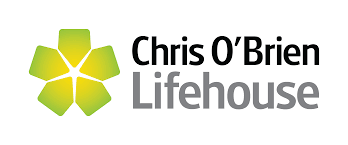Breast Health
What is Breast Health?
Breast health refers to the proactive management and care of breast tissue to prevent and detect abnormalities or diseases, such as breast cancer. It encompasses a wide range of practices, screenings, and knowledge aimed at maintaining healthy breasts throughout a person's life.
Importance of Breast Health
Maintaining good breast health is crucial for several reasons, ranging from early detection of abnormalities to the prevention of breast diseases, including cancer.
Early Detection of Cancer and Other Conditions
Early detection of breast cancer can significantly improve the prognosis and treatment outcomes. Regular breast health checks, like mammograms and clinical examinations, can identify cancer and other breast diseases at an early stage when they are most treatable. For many types of breast cancer, early detection is associated with a higher rate of survival and more treatment options that are less invasive.
Prevention of Disease
Understanding and managing the risk factors for breast diseases is a key aspect of breast health. While some factors, like genetics, cannot be changed, others, such as lifestyle choices involving diet, exercise, and alcohol consumption, can be managed to reduce risk. Maintaining breast health also involves taking preventive measures like adhering to recommended screening schedules and considering prophylactic treatments if there is a high genetic risk.
Psychosocial Benefits
Breast health issues can have significant emotional and psychological impacts. Conditions like breast cancer can affect a person's self-image and emotional well-being. By prioritising breast health, individuals may feel more in control and less anxious about potential health issues. Moreover, those who actively manage their breast health are likely to have better coping mechanisms and support systems in place if a diagnosis does occur.
Better Quality of Life
Promoting breast health also contributes to overall quality of life. For those who have undergone breast cancer treatment, maintaining breast health is crucial for monitoring remission and managing the side effects of treatment. Regular follow-up with healthcare providers ensures that complications or recurrences are handled promptly.
Informing Personal Health Decisions
Knowledge of one's breast health can guide personal health decisions, from choosing appropriate screening techniques to making lifestyle changes. It can also inform decisions about family planning, particularly for those with genetic risks who might consider genetic counselling or testing.
Reducing Healthcare Costs
From a broader perspective, effective management of breast health can reduce healthcare costs by minimising the need for extensive and expensive treatments that are typically required at more advanced stages of diseases like cancer.
Key Components of Breast Health
Regular Screening
Screening methods, such as mammograms and breast ultrasounds, are crucial. They help detect breast cancer early when it is most treatable. Women are generally advised to start routine mammography at a certain age (often between 40 and 50 years, depending on national guidelines and individual risk factors). Still, those with a higher risk of breast cancer may need to begin earlier and screen more frequently.
Self-Awareness and Self-Exams
Being familiar with the normal appearance and feel of one's breasts can help individuals detect any changes, such as lumps, skin changes, or nipple discharge. Check your breasts regularly so that you are familiar with how they normally look and feel and are more likely to notice any unusual changes. The Know Your Lemons diagram shows the 12 signs of breast cancer to look and feel for.

Understanding Risk Factors
Knowing the factors that may increase the likelihood of developing breast conditions, including cancer, is part of maintaining breast health. These risk factors can include age, genetic predispositions, lifestyle choices (such as alcohol consumption and smoking), and reproductive history.
Healthy Lifestyle
Maintaining a healthy lifestyle can also contribute to breast health. This includes eating a balanced diet, engaging in regular physical activity, maintaining a healthy weight, limiting alcohol intake, and avoiding smoking. Such habits can help reduce the risk of breast cancer and other health issues.
Clinical Examinations
Regular clinical exams by healthcare professionals are recommended. During these exams, a doctor or nurse might perform a physical examination of the breasts to check for abnormalities or changes.
Education and Awareness
Being informed about breast health involves understanding the potential symptoms of breast problems, the benefits and limitations of screening techniques, and the latest research in breast care and treatment. Education can empower individuals to make informed decisions regarding their health.
Post-Cancer Care
For those who have been diagnosed with breast cancer, post-operative care and follow-up are part of maintaining breast health. This may include ongoing therapy, such as radiation or chemotherapy, as well as regular follow-ups for several years after treatment to monitor for recurrence.
What is Breast Cancer?
Breast cancer arises when cells in the breast begin to grow uncontrollably. These cells usually form a tumour that can be seen on an X-ray or felt as a lump. The condition primarily affects women but can also occur in men. The growth of breast cancer is often categorised into stages, from 0 to IV, which depict the severity and spread of the cancer.
Breast Cancer Risk Factors
Several factors can increase the risk of developing breast cancer, which include:
- Age: The risk increases as you get older, with most breast cancers diagnosed in women over 50 years of age.
- Gender: Women are much more likely to develop breast cancer compared to men.
- Reproductive History: Early menstrual periods before age 12 and menopause after 55 can raise breast cancer risk, likely due to a longer lifetime exposure to oestrogen.
- Hormone Replacement Therapy (HRT): Long-term use of combined oestrogen and progesterone increases the risk.
- Lifestyle Factors: This includes alcohol consumption, obesity, and lack of physical activity.
- Genetics: Genetics plays a critical role in the risk of developing breast cancer. About 5-10% of breast cancer cases are thought to be hereditary, resulting directly from gene defects (mutations) passed on from a parent.
- BRCA1 and BRCA2: The most common cause of hereditary breast cancer is an inherited mutation in the BRCA1 and BRCA2 genes. Women with a BRCA1 or BRCA2 gene mutation have a significantly increased risk of developing breast cancer and ovarian cancer compared to the general population.
- Other Genetic Mutations: Besides BRCA1 and BRCA2, mutations in other genes, such as PALB2, TP53, and PTEN, are also linked to breast cancer risk.
- Family History: Having a family history of breast cancer, especially in a mother, sister, or daughter, or having multiple family members affected by breast or ovarian cancer can suggest the presence of a hereditary breast cancer syndrome.









